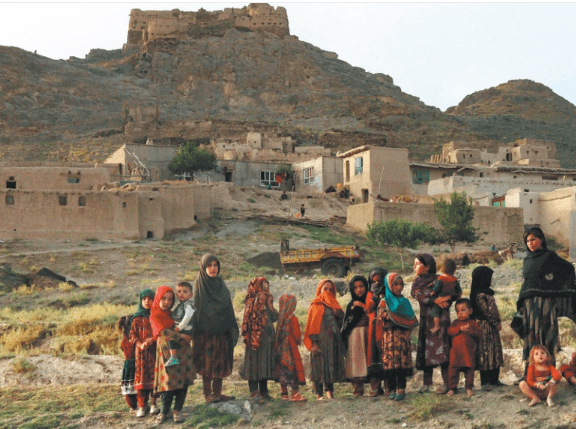
Taliban is working to develop the war-torn country amid sanctions in the wake of Washington’s 20-year military campaign
Humanitarian crisis
“Afghanistan is entrenched in a humanitarian crisis … (due to) the dire consequences of the two-decade-long American occupation that ended in 2021”, said Khalid Taimur Akram, executive director of Pakistan Research Center for a Community with Shared Future, Islamabad.
The current humanitarian crisis is stark, with the Global Hunger Index ranking Afghanistan 114th out of 125 countries in 2023. According to the United Nations Development Programme, 34 million Afghans, accounting for 85 percent of the population, were living below the poverty line by the end of 2022.
More than 24 percent of Afghan children between 5 and 17 years of age experience anxiety in the war-ravaged country, according to a report released by the United Nations International Children’s Emergency Fund last month.
“Children in Afghanistan face severe mental health concerns,” according to the report. About 15 percent of Afghan children experience depression. Conflict, migration, displacement, natural disasters, high levels of poverty and risks of harm from explosive ordinances all have exacerbated mental health challenges among the Afghan children, it said.
The dire situation in Afghanistan is compounded by a sharp decline in international aid and the isolation of its interim government on the global stage. “The US and its allies’ refusal to recognize the Taliban government has hindered diplomatic efforts,” Akram said.
Wang Shida, deputy director of the Institute of South Asian Studies at the Beijing-based China Institutes of Contemporary International Relations, noted the US has evidently made an effort to isolate Afghanistan from the international community, as Taliban retaking control after 20 years of US occupation certainly does not portray the superpower in a positive light and constantly reminds the world of Washington’s failure on the soil of the South Asian nation.
The conflict not only claimed countless Afghan lives but it also meant two decades of lost economic development and the Afghan people are now still paying the price, according to local officials.






